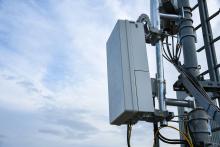We recently surveyed our readers to get an update on their attitudes concerning enterprise WLAN adoption. We received responses from 276 individuals, getting a pretty good mix from midsized-to-large organizations. Our surveys don't typically make their way into the hands of individuals working in small organizations, so in that sense they aren't really representative of the broad business market. But the responses do provide some interesting insights into the views of readers in larger organizations.
We've long felt that even organizations that don't feel ready for strategic wireless deployments should get some skin in the game. It's only through practical, real-world experience that IT professionals come to fully appreciate the complexities associated with Wi-Fi. The notable exception here are high-security environments where a conscious decision has been made not to deploy wireless services. In our sample, 71 respondents--just over 25%--reported no adoption to date. At the other extreme, 38 respondents-- about 15%--reported large installations of over 100 access points. The remaining 60% fell somewhere in between.
We were particularly interested in assessing the differences among these three groups, which we'll label here as wireless resisters, tactical adopters and strategic adopters. When we asked how Wi-Fi might transform LAN services three years into the future, even the wireless resisters acknowledged a significant role, with 32% predicting it would be broadly available throughout their facilities. That compares to 46% of the tactical adopters and 62% of the strategic adopters.
In terms of benefits associated with deploying wireless, the highest ranked item was increased employee convenience and satisfaction, followed by increased productivity and business process improvement. Interestingly, this was consistent across all three groups. The biggest difference across groups related to the role of WLANs in facilitating wireless VoIP rollouts. Strategic adopters viewed it as a significant positive benefit, while the other two groups were neutral or slightly negative about the benefits of wireless VoIP.
The enterprise Wi-Fi market grew somewhere between 5% and 20% last year, depending on whose numbers you believe. That's pretty modest growth, but it's also understandable in light of the many obstacles IT faces in deploying this technology. Despite the emergence of new standards and products, security continues to be the biggest barrier, followed by lack of compelling business justification and uncertainty over evolving WLAN standards. At the opposite extreme, none of the groups cited lack of user demand, operational costs or dissatisfaction with vendor offerings as a significant barrier. Not surprisingly, the greatest difference across our three subsamples related to the lack of compelling business justification. Concerns about acquisition and deployment costs were also much greater among the resisters than the strategic adopters.








